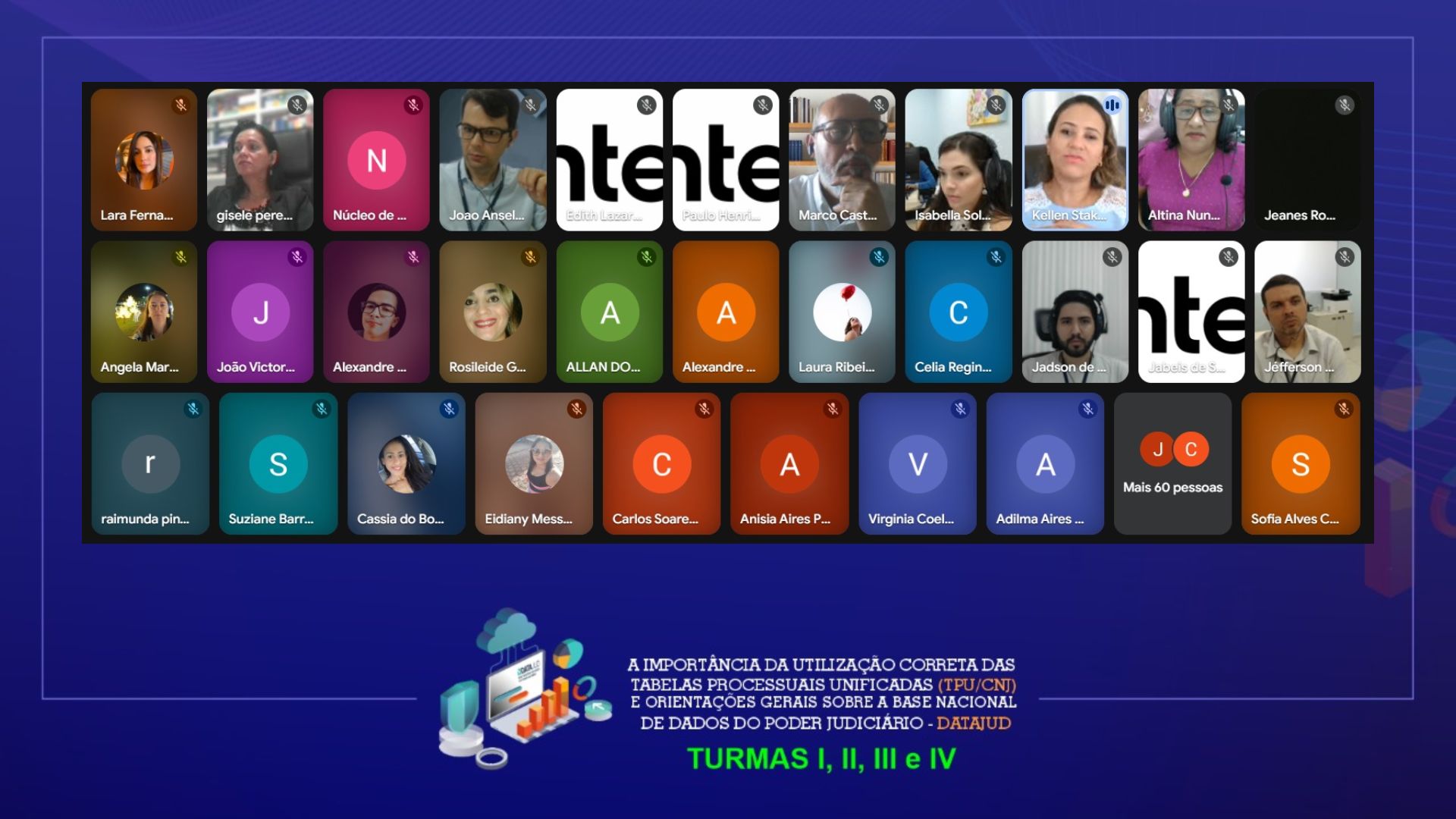
The activities of the first class of the course on The Importance of the Correct Use of the Unified Procedural Tables (TPU/CNJ) and General Guidelines on the National Database of the Judiciary (DataJud) were held on Tuesday (May 13th). Judge Gisele Pereira de Assunção Veronezi, the course coordinator, was present at the opening.
In her speech, Professor Kellen Cleya dos Santos Madalena Stakoviak, who holds a master's degree in Judicial Provision and Human Rights, emphasized the importance of correct procedural handling in the judicial sphere.
"“The procedural tables are essential for our data. The correct registration of cases and their proper handling are the foundation of the entire statistical survey of the Judiciary,” she said.
The course covered the general aspects of the Resolution 46 of December 18th, 2007, which established the Unified Procedural Tables within the scope of the Judiciary. Also presented were guidelines and specific rules for using the Tables of Procedural Matters, Procedural Classes and the Procedural Movement Table, as well as a presentation of the statistics and information panels of DataJud, among other topics.
Class I was aimed at magistrates and civil servers from the Civil, Family and Succession, and Child and Youth Special Courts. The monitors were: Joelma Moreira da Costa, Ully Rejane Cavalcante Simões Nunes da Silva, Cleide Leite de Sousa dos Anjos and Murilo Barreira Lustosa.
Next classes
The programming of the course continues throughout the week, with audiences segmented by areas of competence:
- Class II (May 14th) - Magistrates and civil servers in the areas of competence: Treasury and Public Records, Health, Tax Enforcement, Bankruptcy, Judicial Recovery, Social Security Court 4.0;
- Class III (May 15th) - Magistrates and civil servers in the following competencies: Criminal, Domestic Violence against Women;
- Class IV (May 16th) - Magistrates, civil servers and conciliators/mediators accredited at Nupemec - Competencies: Special Civil and Criminal Courts, Public Finance Courts, Appeals Courts and Cejuscs.




